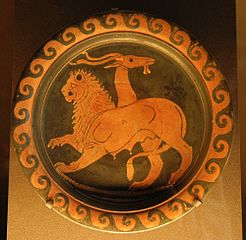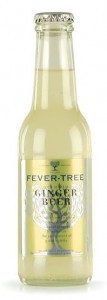 The chimera of myth consisted of the parts of three animals: lion, serpent and goat. By extension, a bio/genetic chimera is an animal composed of more than one genetic line (Wikipedia is there to help if you want to know more).
The chimera of myth consisted of the parts of three animals: lion, serpent and goat. By extension, a bio/genetic chimera is an animal composed of more than one genetic line (Wikipedia is there to help if you want to know more).
Let’s consider chimerism in grammar. In English, we usually inflect words to indicate number (the chimera devours, the chimeras devour), tense (the chimera devours/devoured), comparative & superlative (chimeras are scary/scarier/scariest), &c.
Inflections can be regular (devour/devoured) or not (eat/ate). But some irregular inflections move beyond mere irregularity.
Example 1: bad/worse/worst. Badder & baddest, now non-standard, were once the comparative & superlative of bad. But some while back, “worse”, the comparative of what is now German wirren, confused, was called into service as the comparative of “bad”. Similarly (but harder to trace), good/better/best.
Example 2: go/went/gone. “Went” was (and I suppose still is) the past tense (or, as the cool kids say, preterite) of “wend”. But long time since it was pressed into service as the preterite of “go”.
Example 3: You might object that my first two (or three, I suppose) examples are, being only two-part hybrids, don’t truly qualify as chimeras. So I’ll leave you with “to be”, a true chimera, being, in the words of the OED, “a union of the surviving inflexions of three originally distinct and independent verbs”.
You can’t do better here than to go directly to the OED. I’ll whet your appetite with the very beginning of its article “be”:
[An irregular and defective verb, the full conjugation of which in modern Eng. is effected by a union of the surviving inflexions of three originally distinct and independent verbs, viz. (1) the original Aryan substantive verb with stem es-, Skr. as-, ‘s-, Gr. á¼Ïƒ-, L. es-, ‘s-, OTeut. *es-, ‘s-; (2) the verb with stem wes-, Skr. vas- to remain, OTeut. wes-, Gothic wis-an to remain, stay, continue to be, OS., OE., OHG. wesan, OFris. wes-a, ON. ver-a; (3) the stem beu- Skr. bhÅ«-, bhaw-, Gr. Ï•Ï…-, L. fu-, OTeut. *beu-, beo-, OE. béo-n to become, come to be. Of the stem es-, OE. (like the oldest extant Teutonic) possessed only the present tenses, indicative and subjunctive (orig. optative), all the other parts being supplied from the stem wes-, pa. tense was, which, though still a distinct and complete vb. in Gothic, was in OE. only supplemental to es-, the two constituting the substantive verb am-was. Béon, be, was still in OE. a distinct verb (having all the present, but no past tenses) meaning to ‘become, come to be’, and thus often serving as a future tense to am-was. By the beginning of the 13th c., the infinitive and participle, imperative, and pres. subjunctive of am-was, became successively obsolete, the corresponding parts of be taking their place, so that the whole verb am-was-be is now commonly called from its infinitive, ‘the verb to be,’ although be is no part of the substantive verb originally, but only a later accretion replacing original parts now lost. In OE. the present indicative of am had two forms of the plural, (1) sind, sindon (= Goth. and Ger. sind, L. sunt, Skr. sánti) and earon, aron (= ON. eru), the latter confined to the Anglian dialects, where it was used side by side with sind, -un. Of these, sind, -on ceased to be used before 1250, its place being taken in southern Eng. by the corresponding inflexions of be. We, ye, they beth, ben, be, were the standard forms in southern and midl. Eng. for centuries; and even in the sing., be, beest, beth began to encroach on am, art, is, and are now the regular forms in southern dialect speech. Meanwhile aron, aren, arn, are, survived in the north, and gradually spread south, till early in 16th c. are made its appearance in standard Eng., where it was regularly used by Tindale. Be continued in concurrent use till the end of the century (see Shakespeare, and Bible of 1611), and still occurs as a poetic archaism, as well as in certain traditional expressions and familiar quotations of 16th c. origin, as ‘the powers that be.’ But the regular modern Eng. plural is are, which now tends to oust be even from the subjunctive. Southern and eastern dialect speech retains be both in singular and plural, as ‘I be a going,’ ‘we be ready.’]
More examples?
Update: a Language Log commenter pointed me to suppletion, qv.
